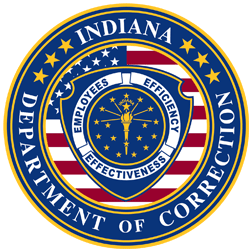Diversion & Deferral Guidelines
Guidelines are adopted pursuant to Indiana Code 33-39-8-5(6)
- The decision to divert cases from the criminal justice system is the responsibility of the Prosecuting Attorney. The Prosecutor should, within the exercise of his or her discretion, determine whether diversion or deferral best serves the interests of justice.
- Diversion and deferral programs shall only be operated with the consent, oversight, and scrutiny of the elected Prosecuting Attorney
- A Prosecutor should attempt to obtain all relevant investigative information, personal data, case records, validated assessment tools, if available, and criminal history and/or driving record information necessary to render sound and reasonable decisions on diversion or deferral of individuals.
- In exercising discretion to divert or defer individuals, factors which may be considered include:
- The nature and severity of the offense;
- Any special characteristics or difficulties of the offender;
- Whether the Defendant is a first-time offender;
- Whether there is a probability that the Defendant will cooperate and benefit from a diversion or deferral program;
- Whether an evidence based practice and/or other program is available and appropriate for the defendant;
- The impact of the diversion or the deferral upon the community;
- Whether the Defendant is likely to recidivate;
- Provisions for restitution; and
- Any mitigating or aggravating circumstances.
- As required by IC 33-39-1-8, the following cases may not be included in a pre-trial diversion program:
- Murder, Level 1, Level 2, Level 3 or Level 4 felony cases
- Cases in which a person
- holds a commercial driver’s license at the time of the request for diversion; and
- has been charged with an offense involving the operation of a motor vehicle in accordance with the federal Motor Carrier Safety Improvement Act of 1999 (MCSIA) (Public Law 106-159.113 Stat. 1748)
- Cases, except as provided in Title 12, in which a person is arrested for or charged with:
- an offense under IC 9-30-5-1 through IC 9-30-5-5; or
- if a person was arrested or charged with an offense under IC 9-30-5-1 through IC 9-30-5-5, an offense involving:
- intoxication; or
- operation of a vehicle if the offense involving intoxication or the operation of a vehicle was part of the same episode of criminal conduct as the offense under IC 9-30-5-1 through IC 9-30-5-5.
- Cases in which a person is arrested for or charged with:
- an offense under:
- (a) IC 7.1-5-7-7, if the alleged offense occurred while the person was operating a motor vehicle;
- (b) IC 9-30-4-8(a), if the alleged offense occurred while the person was operating a motor vehicle;*
- (c) IC 35-44.1-2-13(1); or
- (d) IC 35-43-1-2(a), if the alleged offense occurred while the person was operating a motor vehicle; and
- (2) who was less than eighteen (18) years of age at the time of the alleged offense.
- an offense under:
- As required by IC 34-28-5-1, an offense or violation under IC 9-24-6 (before its repeal) or I.C.9-24-6.1 involving the operation of a commercial motor vehicle may not be deferred.
- A Prosecutor shall not negotiate a diversion agreement with an unrepresented defendant prior to a waiver of the right to counsel at an initial hearing before a judicial officer.
- Diversion and deferral agreements shall be in writing, executed by the parties, and filed with the court as a public document.
- The elected Prosecuting Attorney shall not receive any salary appropriation from diversion or deferral funds.
- Funds derived from diversion or deferral should be disbursed in conformity with the provisions of I.C. 33-37-8-6(b)
- Along with the initial user’s fee and monthly user’s fee, an additional program fee or cost may be collected pursuant to I.C. 33-37-4-1(c)(4) which should be reasonable and tied specifically to the rehabilitative program or service required of the defendant and, also, approved by the court.
- Prosecutors’ offices which receive diversion or deferral funds should make any budget requests to their local county fiscal body based upon an appropriating ordinance (I.C. 33- 37-8-6) without regard for anticipated or projected diversion or deferral revenues.
- Diversion or deferral funds shall be maintained as local user fees by the appropriate county official as required by law in a separate account subject to appropriate accounting controls and financial audits of all deposits and expenditures.
- The Prosecutor’s office shall not handle diversion or deferral fees. All payments made to the program are to be made through the Clerk’s office (I.C. 33-37-5-17).
- Only those fees, statutory fees, program fees, and costs which are consistent with the appropriate statutory authority shall be required and collected.
- All expenditures of diversion or deferral funds shall be approved by the county fiscal body or the county executive.
- No claim for expenditures from the county diversion or deferral user funds shall be appropriated by the county fiscal body or approved by the county executive without the consent and approval of the prosecuting attorney.
- As a requirement of maintaining a diversion or deferral program the prosecuting attorney must electronically transmit information required by the Prosecuting Attorneys Council using the Prosecutor’s Case Management System (PCMS). This information is considered confidential and is designed for the use of prosecuting attorneys in making diversion or deferral decisions under Guidelines (3) and (4) above.
*I.C. 9-30-4-8 does not have a subsection (a). Also, I.C. 9-30-4-8 is titled ‘Operation of motor vehicle following suspension of certificate of registration or in violation of restricted driving privileges,’ and it does not address violation of restricted driving privileges.
Approved by the Indiana Prosecuting Attorneys Council on February 22, 2019
Additional Community Corrections Supervision Programs
The Community Corrections Division is a unit under the Indiana Department of Correction (IDOC) Re-Entry and Youth Services Division. The division provides state aid through the Community Corrections and Justice Reinvestment Funding as an annual grant under IC 11-12 and administers the Community Transition Program.
